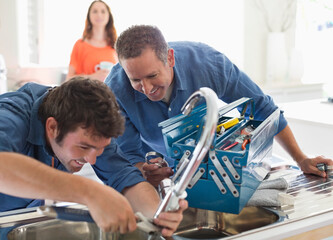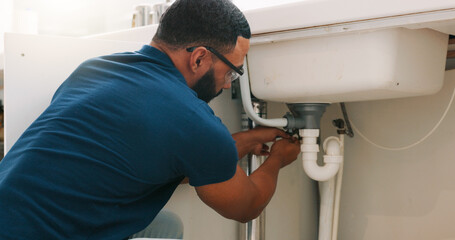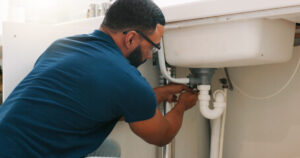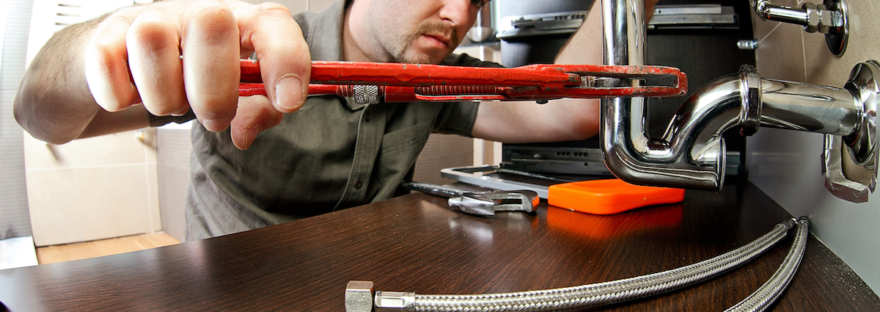Plumbers are responsible for the pipes and fixtures that facilitate water supply, waste removal, and sanitation in residential and commercial settings. They are often the first to be called when there is a problem with these systems.

While many associate plumbers with making house calls, they also work on new construction and commercial projects by consulting blueprints and interpreting building codes. They must have strong analytical thinking skills and be creative when solving problems on the job site. Contact Plumbers Castle Rock for professional help.
Plumbing is an in-demand career, with job stability and a potential for long-term success. Plumbers install, repair, and maintain the water and sewage systems that keep homes and businesses safe and comfortable. They often work with dangerous chemicals, sewage, and high-pressure systems, so they must follow strict safety guidelines to avoid injury. In addition to unclogging toilets and fixing sinks, they may also install and repair heating, ventilation, and air conditioning systems. Plumbers can choose from a variety of jobs, including working for construction companies, public works departments, or even their own independent plumbing business.
Plumbers can expect to be on call to respond to emergency calls for repairs or installations at any time of the day or night. This can lead to stressful situations where the plumber is under pressure to solve a problem quickly and efficiently. Plumbers should also be prepared for extreme weather conditions, as they are often exposed to hot, cold, or rainy environments when performing outdoor tasks.
The work environment for a plumber can be physically demanding, as they are required to bend over and crawl into tight spaces. In addition, they often work with heavy equipment and tools. Consequently, they can experience back injuries and other health problems.
While the physical demands of this career are high, plumbers can find satisfaction in knowing that their work makes a difference in people’s lives. In many cases, plumbers solve urgent problems, such as burst pipes and severe leaks, which can be dangerous if not dealt with immediately. This sense of accomplishment can make the career rewarding for plumbers.
Another benefit of the plumbing industry is its focus on lifelong learning. From mastering new techniques and technologies to staying current with building codes and regulations, there is always something new for plumbers to learn. This constant learning keeps the work interesting and challenging, and it also helps plumbers advance in their careers. Some even become licensed contractors, which allows them to earn higher wages and start their own plumbing businesses. While this career requires a certain amount of dedication and hard work, it can be an excellent choice for those who want to be their own bosses and enjoy the flexibility of working independently.
Education and Training Requirements
Becoming a plumber requires specialized training and experience. Most plumbers learn on the job, but some begin by enrolling in a vocational program or apprenticeship. Many programs also offer courses in plumbing technology, which introduce students to the theory and practices of plumbing. Some even include hands-on experiences in a laboratory setting. For example, the New England Institute of Technology offers a four-term program that covers topics such as pipe fabrication, fitting identification and usage, plumbing systems, drainage, waste and venting, and water sources and distribution.
After completing an education or apprenticeship program, aspiring plumbers must pass state-specific licensing exams to become licensed. These exams test their knowledge of plumbing codes and practices, as well as their skills. The exam requirements vary by state, but typically involve a written and hands-on test. Once licensed, plumbers should continue to invest in professional development to stay current on new technologies and industry standards.
In addition to technical and educational qualifications, plumbers must have physical stamina for the often laborious and repetitive tasks involved in the job. They should also have good communication skills, especially when interacting with customers. Punctuality is important, as plumbers are expected to arrive on time for scheduled jobs and meetings with clients.
The best way to prepare for a career as a plumber is to start with a high school diploma or equivalent, then take relevant college courses or a vocational program. Many colleges and trade schools have programs specifically designed for aspiring plumbers. These programs can provide an excellent foundation for the career, including coursework in plumbing technology, drawing, and piping systems design.
The most important thing to remember when preparing for a plumber job is that every state has its own licensing rules. Before applying, it is essential to understand the state’s requirements, which may include passing a written and practical exam, working a certain number of years, or meeting other criteria. Some states have reciprocity agreements with other states that allow licensees to work in those jurisdictions without additional certification or testing.
Job Duties
In general, plumbers perform a variety of tasks to install, repair and maintain plumbing systems in both residential and commercial buildings. They may also be called upon to troubleshoot and resolve plumbing issues when they arise. Some of the main responsibilities include inspecting the work site to determine the best materials, equipment and tools for the job, installing or replacing plumbing fixtures such as toilets, bathtubs, showers, faucets and water heaters, repairing and replacing gas pipes and repairing and maintaining backflow preventers. Plumbers also test and calibrate equipment to ensure it is working properly, and they often keep records and logs of the work that they have done.
Some plumbers specialize in certain areas of the field, and this can impact their job duties. For example, a service plumber is likely to spend the majority of their time on routine plumbing repairs in residential settings, such as unclogging drains or fixing toilet leaks. These are the types of jobs that can be completed in less time, and they tend to require less technical knowledge than other more complicated projects.
Other plumbers may focus more on installing and repairing specialized plumbing systems, such as drainage for industrial or commercial facilities. In this type of work, plumbers typically have more involved project management responsibilities and are responsible for overseeing a team of plumbing helpers and apprentices. They are also required to read and interpret blueprints and other technical documents.
Regardless of the specific area in which they specialize, all plumbers must be competent at the following basic plumbing skills:
Performing maintenance on all plumbing and related fixtures and systems including water, waste, venting and sanitary sewers of all sizes and materials. Maintains the cleanliness of all bathroom fixtures and appurtenances to include mirrors, soap dispensers, urinals, service sinks and lab tables. Removes and replaces broken units and reinstalls new equipment as needed. Inspects plumbing system components and fixtures to detect failures or locate causes of malfunctions, and uses a variety of hand and power tools. May be exposed to chemicals, solvents, cleaners and other products that could be hazardous or cause injury if not used according to manufacturer instructions or job procedures.
Salary
Plumbing is a skilled trade that can provide stable employment and high earning potential. Plumbers are constantly in demand as people build new homes and businesses, and existing buildings need upgrades and maintenance. The job is hands-on and varied, which makes it a good fit for people who enjoy working with their hands and solving problems. Those who become plumbers often enjoy the flexibility to set their own hours and choose which projects they want to work on. Some even choose to become independent contractors, allowing them to increase their earnings potential.
Plumbers are responsible for the installation, repair, and maintenance of piping systems that deliver water, waste products, and heating and cooling. They use their knowledge of building codes and regulations to ensure plumbing installations are up to code. They also troubleshoot and diagnose issues like clogged drains, toilets, and water heaters. In addition, plumbers may work on specialized plumbing systems, such as sprinkler and fire alarm systems, or sewage treatment plants.
Different plumbers specialize in residential, commercial, or industrial settings. Residential plumbers specialize in the installation, repair, and maintenance of pipes and fixtures in houses and apartments. They commonly install and repair sinks, toilets, showers, and water heaters. They also deal with a wide range of residential plumbing issues, such as clogged drains and leaky faucets.
Commercial plumbers specialize in the larger-scale plumbing systems found in office buildings, retail spaces, and other commercial buildings. They typically deal with issues like installing a commercial sprinkler system or repairing a broken water heater. Industrial plumbers are experts in the plumbing systems found in factories and other large-scale facilities. They frequently deal with complex plumbing systems and power tools, and they must adhere to strict safety protocols when working in these environments.
Plumbers can increase their earning potential by pursuing additional certifications and training opportunities. They can also move into more specialized areas of plumbing, such as gas lines or sewer systems, which offer higher salaries. Additionally, plumbers can improve their income by relocating to a thriving construction market. Plumbers who become union members can earn a competitive wage and receive robust benefits, including healthcare and pension plans.




